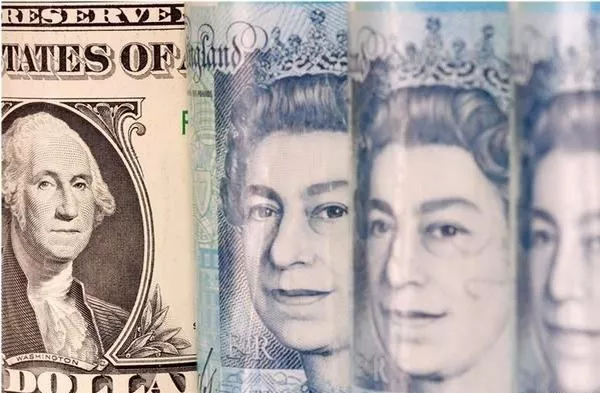The exchange rate between the British pound (GBP) and the European Union’s euro (EUR) is one of the most closely watched currency pairs in the world. It is a topic of constant discussion among economists, investors, and traders alike. The question on everyone’s mind is whether the pound is stronger than the euro or vice versa. In this article, we will provide a comprehensive analysis of this topic and attempt to answer some of the key questions surrounding it.
Exchange Rates and Currency Strength
Before we delve into the specifics of the GBP/EUR exchange rate, it is important to understand how exchange rates work and how they relate to currency strength. An exchange rate is simply the price at which one currency can be exchanged for another. For example, if the GBP/EUR exchange rate is 1.10, it means that one British pound can be exchanged for 1.10 euros.
Currency strength, on the other hand, is a broader concept that refers to the relative value of one currency compared to others. For instance, if the pound is considered strong, it means that it has appreciated in value compared to other currencies like the euro, US dollar, or Japanese yen.
Factors That Affect Exchange Rates
Several factors can impact the exchange rate between two currencies. These include:
1. Interest rates: Higher interest rates generally lead to a stronger currency since they attract more foreign investment.
2. Economic performance: Strong economic growth and low inflation can make a currency more attractive to investors.
3. Political stability: Investors tend to favor currencies of countries with stable political environments.
4. Trade balances: A country with a trade surplus (exports exceed imports) tends to have a stronger currency.
5. Global events: Major geopolitical events like wars or natural disasters can cause significant fluctuations in exchange rates.
Pound vs. Euro: Historical Performance
To determine whether the pound is stronger than the euro, we need to look at the historical performance of both currencies. The chart below shows the GBP/EUR exchange rate over the past ten years:
As you can see from the chart, the exchange rate has been quite volatile over the past decade, with several significant swings in either direction. However, there are a few key observations that we can make:
1. The pound was stronger than the euro in 2015-2016: In late 2015 and early 2016, the pound reached its highest level against the euro in several years, with an exchange rate of around 1.44. This was due in part to the expectation that the UK would vote to remain in the European Union.
2. The euro was stronger than the pound in 2017-2018: After the Brexit referendum in June 2016, the pound began a prolonged decline against the euro, reaching a low of around 1.07 in August 2017. It then rebounded somewhat but remained weaker than the euro for most of 2018.
3. The pound has been relatively stable against the euro since 2019: Over the past few years, the GBP/EUR exchange rate has fluctuated within a narrow range, generally between 1.10 and 1.20.
Factors Affecting Pound vs. Euro Performance
Now that we have looked at historical performance, let’s examine some of the factors that have affected the relative strength of the pound and the euro in recent years.
Brexit: One of the most significant factors that have impacted the pound/euro exchange rate is the UK’s decision to leave the European Union, commonly known as Brexit. The uncertainty surrounding Brexit negotiations led to volatility in the pound’s value, with sharp drops in the immediate aftermath of the vote and subsequent developments.
Inflation: Inflation is another factor that can impact currency strength. Inflation erodes the purchasing power of a currency and can make it less attractive to investors. In recent years, both the UK and eurozone have experienced low inflation rates.
Interest Rates: Interest rates are another key factor affecting currency strength. Higher interest rates tend to attract foreign investment and can lead to currency appreciation. The Bank of England has historically had higher interest rates than the European Central Bank (ECB). However, in response to the COVID-19 pandemic, both central banks have implemented measures to lower interest rates and support their respective economies.
COVID-19 Pandemic: The COVID-19 pandemic has created unprecedented economic disruption worldwide, leading to sharp declines in stock markets and significant currency fluctuations. In the UK and Europe, governments and central banks have responded with massive stimulus packages to support businesses and individuals affected by lockdowns and other restrictions.
Conclusion
In conclusion, the question of whether the pound is stronger than the euro is not a straightforward one to answer. Over the past decade, there have been periods where the pound has been stronger than the euro, as well as periods where the situation has been reversed.


